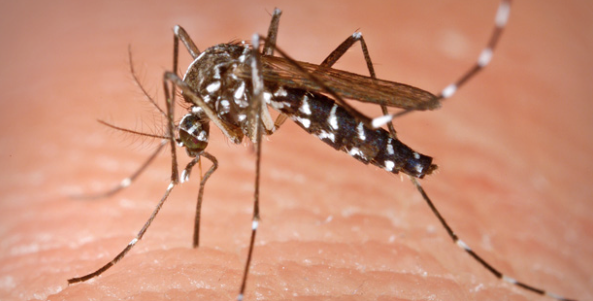VENTURA — A higher risk of exposure to mosquitoes is to be expected with warmer summer weather, longer days, and increased outdoor activities. Mosquitoes can transmit diseases such as West Nile virus (WNV), St. Louis Encephalitis virus or Western Equine Encephalitis virus, so the Ventura County Environmental Health Division is advising the public to take precautions to protect against mosquito bites and assist with the effort to control mosquitoes.
To minimize exposure to mosquitoes, standing water should be eliminated – no matter how small the amount. Make sure doors and windows have tight-fitting screens without holes. When outdoors, wear protective clothing and apply an EPA-approved insect repellent containing DEET, picaridin, or oil of lemon eucalyptus. If water is stored in rain barrels or other containers for longer than a week, mosquito-proof containers by covering all openings with tight-fitting lids or 1/16-inch fine mesh screen.
Environmental Health monitors and controls mosquitoes at approximately 2,400 mosquito breeding sources throughout Ventura County. They are asking the public to assist with the mosquito control effort by reporting mosquito activity or potential mosquito breeding sites. Mosquito complaints can be reported to the complaint hotline at (805) 658-4310.
Mosquito-eating fish are available to the public for use in ornamental ponds and water features. To request mosquito-eating fish, call (805) 662-6582. To report dead birds for WNV testing, contact the California Department of Public Health for West Nile virus testing, call (877) 968-2473 or visit westnile.ca.gov.
Environmental Health also advises the public to be alert for two invasive (non-native) mosquito species that have recently been found in several areas of California. They are Aedes aegypti (yellow fever mosquito) and Aedes albopictus (Asian tiger mosquito) that have been known to carry several viruses including Zika. These are small, aggressive daytime-biting mosquitoes with white stripes on their back and legs. Their eggs can survive being dry for months in small artificial or natural containers and can hatch in a teaspoon of water, so eliminating potential breeding sources is critical.
For additional information, visit: https://vcrma.org/vector-control-program

